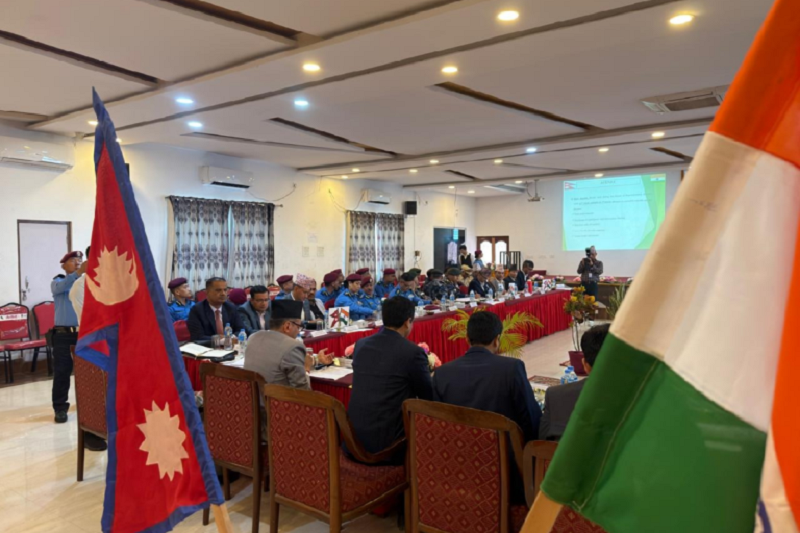The Bright Future of Nepali IT: Policy Reforms Needed to Stop Brain Drain
24th November 2025, Kathmandu
Nepal’s IT Revolution: AI, Cybersecurity, and the Global Future of Nepali Youth Niranjan Kunwar, IT and Cyber Security Expert
“AI has the potential to completely transform how not just individuals, but organizations, nations, and the entire world operates.”
Niranjan Kunwar, a veteran IT and Cyber Security expert and the CTO/CISO of UK-headquartered Genesys Solution, offers a critical analysis of Nepal’s digital future. His insights cover the AI revolution, the state of cyber security in Nepal, and the vast potential for local IT talent to compete globally.
Bright Future of Nepali IT
The AI Revolution: Nepal’s “Small Window” of Opportunity
Kunwar views the Artificial Intelligence (AI) revolution as a transformative shift comparable to the Industrial, Internet, and Mobile Revolutions. AI is poised to fundamentally change how we work, decide, and communicate.
The Opportunity: AI offers Nepal a significant chance to ‘leapfrog’ its developmental limitations. It can boost efficiency, effectiveness, and innovation across key sectors like education, government services, banking, and personal productivity.
Local Talent: Nepal possesses partial talent and expertise that can not only utilize this technology but potentially become pioneers, capable of accessing and competing with global developed centres right from Kathmandu
Cyber Security in Nepal: The Weakest Link is “People”
While digital transformation is accelerating, Kunwar notes that Nepal’s cyber security maturity level remains low.
Policy Deficiencies: The critical gap is the absence of a dedicated Data Protection and Privacy Law. Without a legal framework for protecting citizens’ personal information and critical national data, Nepal is highly vulnerable. Laws mandating breach notification to a regulatory body like the GDPR in Europe are urgently needed.
Misconception: The fundamental issue is that government and private organizations mistakenly treat cyber security as purely a ‘Technology Problem’. It is, in reality, an ‘Organizational Risk’ that directly impacts business bottom lines, reputation, and national security.
The ‘People’ Pillar: Kunwar identifies ‘People’ as the weakest pillar among the three essential components (People, Process, Technology). Technology alone is insufficient; an unaware individual can compromise an entire system with a single phishing email. Therefore, Cyber Security Awareness and Digital Literacy must be the first priority.
The Future of IT: Global Work, Local Base
With 26 years of international experience, Kunwar is highly optimistic about Nepal’s IT future.
Global Competitiveness: The IT workforce produced by Nepali universities is reaching a standard where it can compete globally.
Working for the World from Nepal: Citing Genesys Solution’s team, who deliver high-quality services to clients in the US, UK, and Europe from Kathmandu, Pokhara, and Nepalgunj, he asserts: “Our youth can work at an international level while residing here, contribute to the country, and compete in the global market.”
The Call for Government Support: Like neighboring India did years ago, the Nepali government must institute the right policy reforms, create an investment-friendly environment, and prioritize the technology sector. This will create conditions where young people are no longer forced to seek opportunities abroad, leading the country toward a massive economic leap.
The Mandate for Continuous Learning
While university curricula provide an international-level foundation, the exponential speed of technology demands Continuous Learning and hands-on experience.
IT education never ends; students must focus on specialization and practical experience to keep pace with the rapidly evolving digital landscape.
For more: Bright Future of Nepali IT
Author :Krishna Prasad Bhattarai







